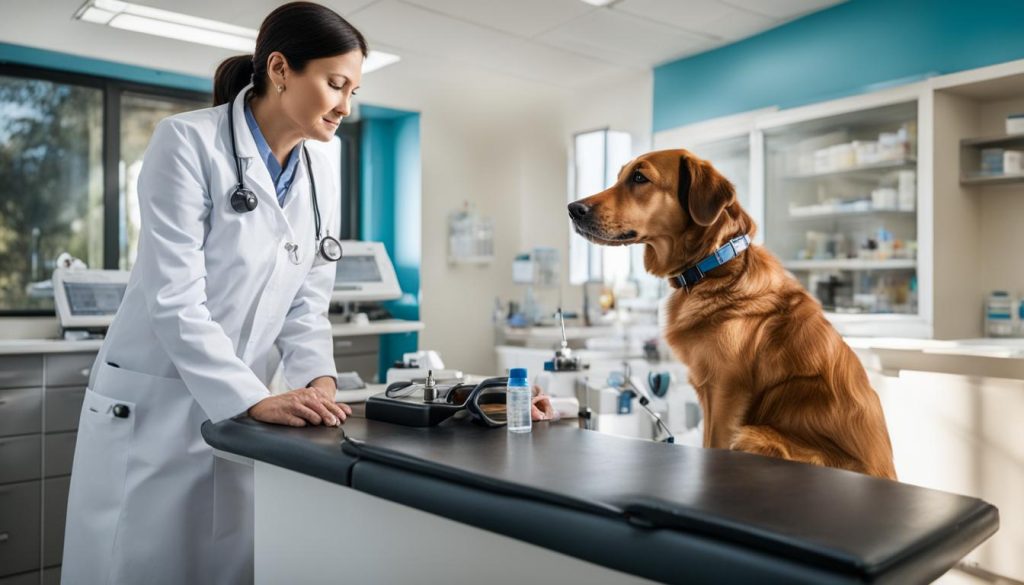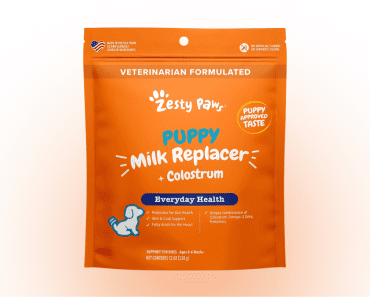As our dogs become seniors, their needs change, and it’s important to adjust their routine to ensure their health and happiness in their golden years. From understanding when your dog is considered a senior to monitoring their health, nutrition, exercise, and grooming, these tips will help you provide the best senior care for your aging canine companion.
As dog owners, we want our furry friends to live long and fulfilling lives. Just like humans, dogs experience changes as they age, and it’s our responsibility to support their well-being. By making a few adjustments to their care, we can ensure that our senior dogs enjoy their golden years to the fullest.
When it comes to senior care for dogs, there are several key areas that need to be addressed: health, nutrition, exercise, grooming, and overall well-being. By keeping these factors in mind, you can create a senior care routine that promotes a happy and healthy lifestyle for your older canine companion.
Key Takeaways:
- Determine when your dog is considered a senior by consulting with your vet.
- Be aware of common health issues that affect senior dogs and monitor your dog’s health closely.
- Schedule regular wellness exams to detect any health issues early on.
- Monitor your dog’s weight and adjust their nutrition accordingly.
- Provide regular exercise, grooming, and mental stimulation to keep your senior dog active and happy.
When is Your Dog Considered “Senior”
Dogs, just like humans, go through different life stages, and it’s important to understand when your furry friend enters their golden years. While the exact age at which a dog is considered a senior can vary based on factors like breed and size, most dogs reach “seniorhood” between 7 and 10 years old. Larger dogs tend to age faster than smaller ones, so they may enter their senior years even earlier.
Keep in mind that these are general guidelines, and individual dogs may age at different rates. The best way to determine when your dog’s needs may start to change is by consulting with your veterinarian. They can assess your dog’s overall health and guide you on the specific care and attention your senior canine companion requires.
As your dog transitions into their senior years, it’s essential to pay close attention to their physical and mental well-being. Aging dogs may experience changes in their health, mobility, appetite, and behavior that require adjustments in their care routine. Understanding when your dog enters their senior years is the first step in providing them with the best possible care and ensuring their happiness and quality of life.
Common Senior Issues to Watch For
As dogs age, they may become more prone to certain health issues. It’s important to be aware of these common problems and monitor your senior dog’s health closely. Here are some of the most prevalent issues:
- Arthritis: Joint inflammation can cause pain and stiffness, making it difficult for senior dogs to move comfortably.
- Deafness: Age-related hearing loss can affect your dog’s ability to respond to commands and communicate.
- Kidney Disease: Senior dogs may develop kidney problems, leading to reduced kidney function and potential kidney failure.
- Cognitive Disorders: Canine cognitive dysfunction, similar to Alzheimer’s disease in humans, can cause confusion, disorientation, and changes in behavior.
- Intestinal Problems: Digestive issues such as constipation, diarrhea, and decreased appetite may occur more frequently in older dogs.
- Prostate Disease: Male dogs may develop problems with their prostate gland, such as enlargement or infection.
- Dental Disease: Dental issues, including gum disease, tooth decay, and tooth loss, can affect your senior dog’s overall health and well-being.
- Diabetes Mellitus: Older dogs can develop diabetes, a condition that affects their body’s ability to regulate blood sugar levels.
- Cancer: The risk of cancer increases with age in dogs, and early detection is crucial for successful treatment.
- Liver Disease: Senior dogs may experience liver problems, leading to reduced liver function and potential liver failure.
- Vision Problems: Ocular conditions such as cataracts, glaucoma, and age-related macular degeneration can impact your dog’s eyesight.
To ensure your senior dog’s well-being, it’s essential to stay alert for any signs of these issues. Regular veterinary check-ups and prompt medical attention can help manage and treat these conditions effectively. Remember, just like us, our furry friends deserve the best possible care in their senior years.
Stay tuned for Section 4, where I’ll discuss the importance of scheduling regular wellness exams for your senior dog.
Schedule Regular Wellness Exams
Regular wellness exams are crucial for senior dogs. As our furry friends age, their health needs change, and it becomes essential to monitor their well-being closely. To ensure your senior dog’s continued health and longevity, it is recommended to schedule regular visits to the vet, at least once every six months.
These wellness exams serve several important purposes. Firstly, they allow for early detection of any health issues that may arise, enabling prompt treatment and management. Early intervention often leads to better outcomes and helps prevent conditions from worsening. Secondly, these exams provide an opportunity to assess your senior dog’s overall health, identifying any potential underlying concerns that may not be immediately apparent.
During these visits, your vet may conduct a range of baseline laboratory tests to gain a comprehensive understanding of your dog’s health. These tests can include urinalysis, CBC (complete blood count), CHEM screen (biochemical profile), blood pressure measurement, heartworm blood test, fecal examination, and thyroid function testing. These tests help screen for common health problems, such as organ dysfunction, heartworm disease, and thyroid imbalances, providing valuable insights into your senior dog’s overall well-being.
Ensuring regular wellness exams for your senior dog not only helps keep them healthy but also allows you to establish a strong partnership with your veterinarian. Your vet will become familiar with your dog’s health history, making it easier to detect any changes or abnormalities. They can also provide personalized recommendations for maintaining your dog’s health as they age.
Remember, prevention is key when it comes to senior dog care. By scheduling regular wellness exams, you can stay on top of your dog’s health needs and provide them with the best possible care throughout their golden years.

Consistently Monitor Your Senior Dog’s Health
As a responsible pet owner, keeping a close eye on your senior dog’s health is crucial for their well-being. Regular monitoring between vet visits allows you to detect any potential issues early on and ensure prompt medical attention. Here are some signs and behaviors to watch out for:
- Incontinence: Pay attention to any accidents or difficulty holding their bladder or bowels.
- Increased vocalization: Notice if your dog is barking or whining more frequently than usual.
- Changes in appetite or water intake: Monitor any significant changes in eating or drinking habits.
- Coughing: Be alert to persistent coughing or difficulty breathing.
- Weakness or stiffness: Observe if your dog seems less energetic or has trouble moving.
- Lumps or swelling: Check for any unusual growths or swellings on their body.
- Aggression or behavioral changes: Take note if your dog becomes unusually aggressive or displays any sudden changes in behavior.
If you notice any of these signs or any other concerning behaviors, it’s essential to contact your veterinarian immediately. Early intervention can make a significant difference in managing health conditions and ensuring your senior dog’s comfort.
Remember, your senior dog relies on you to be their advocate and caregiver. By consistently monitoring their health and promptly addressing any issues, you can provide them with the best possible care in their golden years.
Watch Their Weight and Adjust Nutrition
Weight management is crucial for senior dogs to prevent obesity and related health issues. As dogs age, their metabolism slows down, making it easier for them to gain weight. In order to ensure that your senior dog maintains a healthy weight, it’s important to closely monitor their weight and adjust their nutrition accordingly.
If you notice any unexplained fluctuation in your dog’s weight, it could be a sign of an underlying disease or condition. Therefore, it’s essential to regularly weigh your senior dog and keep track of any changes. If you have concerns about your dog’s weight, consult with your veterinarian for guidance and advice.
Adjusting your senior dog’s nutrition is an important aspect of their overall care. As dogs age, their dietary needs change, and they may require specific nutrients to support their health. Consider switching to a senior dog food formula that is specially formulated to meet the nutritional requirements of aging dogs.
Additionally, smaller, more frequent meals can be beneficial for senior dogs. This can help prevent digestive issues and promote better nutrient absorption. Consult with your vet to determine the optimal diet for your senior dog based on their size, breed, and any underlying health conditions.
Remember that every dog is unique, and their nutritional needs may vary. Regularly assess your senior dog’s body condition and adjust their diet as needed to maintain an ideal weight and support their overall health and well-being.
Conclusion
Providing the best care for your senior dog involves understanding their changing needs, monitoring their health, adapting their diet and exercise routine, and providing a safe and comfortable environment. Regular vet checkups, proper nutrition, weight management, and adjustments to accommodate their changing abilities are key in ensuring a happy and healthy life for your aging canine companion.
As your dog enters their golden years, it’s important to remember that they may require extra attention and care. Keeping a close eye on their health and well-being will help you identify any potential issues early on. Regular visits to the vet play a critical role in maintaining their overall health.
Adjusting your dog’s diet to meet their nutritional needs as they age is also crucial. Senior dogs often have different dietary requirements, and consulting with your vet can help you make informed decisions about their nutrition. Additionally, managing their weight through portion control and exercise will help prevent obesity-related health issues.
Finally, creating a safe and comfortable environment for your senior dog is essential. This can include providing soft bedding, easy access to water and food, and minimizing any potential hazards in your home. Regular grooming, including brushing their teeth and coat, will also contribute to their overall well-being.
FAQ
When is a dog considered “senior”?
Dogs reach “seniorhood” at different ages, with most canines becoming seniors between 7 and 10 years old. Larger dogs tend to reach senior status earlier than smaller dogs. Consult with your vet to determine when your dog’s needs may start to change as they age.
What are common health issues in senior dogs?
Common health issues in senior dogs include arthritis, deafness, kidney disease, cognitive disorders, intestinal problems, prostate disease, dental disease, diabetes mellitus, cancer, liver disease, and vision problems. It’s important to monitor your senior dog’s health closely and be aware of these potential issues.
How often should I schedule wellness exams for my senior dog?
It is recommended to have your senior dog seen by a vet at least once every six months for regular wellness exams. These exams allow for early detection of any health issues, assessment of overall health and longevity, and identification of potential health risks.
What signs should I watch for to monitor my senior dog’s health?
Watch for signs such as incontinence, increased vocalization, changes in appetite or water intake, coughing, weakness, stiffness, lumps, aggression, or other behavioral changes. Any concerning signs should be reported to your vet immediately.
How can I manage my senior dog’s weight?
Weight management is crucial for senior dogs to prevent obesity and related health issues. Observe any unexplained fluctuation in your dog’s weight, as it may be a sign of an underlying disease. Adjust your dog’s nutrition to meet their changing needs, considering senior dog food formulas and smaller, more frequent meals. Consult with your vet to determine the optimal diet for your senior dog based on their size.
What is important to consider when caring for a senior dog?
Providing the best care for your senior dog involves understanding their changing needs, monitoring their health, adapting their diet and exercise routine, and providing a safe and comfortable environment. Regular vet checkups, proper nutrition, weight management, and adjustments to accommodate their changing abilities are key in ensuring a happy and healthy life for your aging canine companion.






